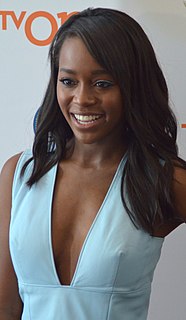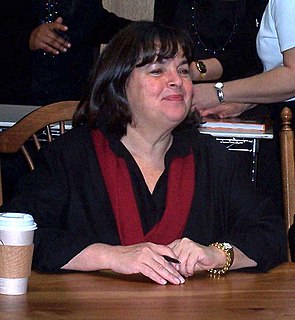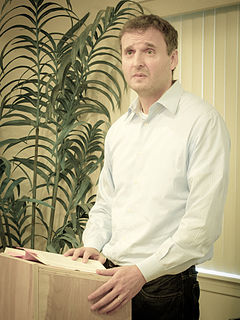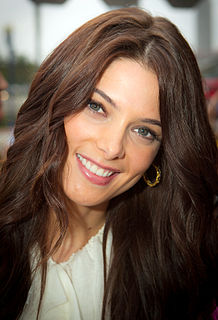A Quote by Lisa Gardner
I still like the relationship part of any story. You don't want your character to figure everything out and then at the end of the day, go home and eat soup from a can by herself.
Related Quotes
Everyday I eat some soup. This is part of our culture - our mommies and grammies make it, and at any restaurant in Serbia, you can go in and find some soup. There might be minestrone, butternut squash, chicken noodle soup, tomato soup, mushroom soup, lamb soup. Whatever you can find, you can make a soup with that.
In this day and age, when there are so many people creating work online and writing their own shows, I wouldn't tell another actor, 'If you can do anything else go do that.' I would tell them to figure out the story they want to tell, to figure out what artists inspire you and why, and then figure out a way you can create that for yourself.
You can't go home and look at your plaques at the end of the day, because every politician has like a million plaques on their wall. OK? You don't go home and look at - you don't get anything for that. And you can't go home and say, boy, I really served the Democratic Party or the Republican Party. You want to go home and, you know, Fourth of July, you know, any of these special holidays that recognize our country, you want to feel like you've built a stronger nation, which means you helped build the people and put them in a stronger place where everyone's lifted.
I think there are two ways of eating, or cooking. One is restaurant food and one is home food. I believe that people have started making food that is easy that you want to eat at home. When you go out to a restaurant, you want to be challenged, you want to taste something new, you want to be excited. But when you eat at home, you want something that's delicious and comforting. I've always liked that kind of food - and frankly, that's also what I want to eat when I go out to restaurants, but maybe that's me.
All right. Are you going to come back? Do you want any soup?" "No," said Jace. "Do you think Hodge will want any soup?" "No one wants any soup." "I want some soup," Simon said. "No, you don't," said Jace. "You just want to sleep with Isabelle." Simon was appalled. "That is not true." "How flattering," Isabelle murmured into the soup, but she was smirking. "Oh, yes it is," said Jace. "Go ahead and ask her—then she can turn you down and the rest of us can get on with our lives while you fester in miserable humiliation." He snapped his fingers. "Hurry up, mundie boy, we've got work to do.
If the point of life is the same as the point of a story, the point of life is character transformation. If I got any comfort as I set out on my first story, it was that in nearly every story, the protagonist is transformed. He's a jerk at the beginning and nice at the end, or a coward at the beginning and brave at the end. If the character doesn't change, the story hasn't happened yet. And if story is derived from real life, if story is just condensed version of life then life itself may be designed to change us so that we evolve from one kind of person to another.
When something arrives, you have no idea what's in it, which is good. And then, it's is the story leaps off the page at you and how your character functions within it. There could be just one scene and if it's wonderful, it doesn't matter how much you're working on it because you just want to be in it. It's really about what your character's day to day world looks like, and if you feel like that's something that's complete, and that you'd like to inhabit for awhile. You'll know by a couple of scenes in. If the character grabs you, you run with it.
I remember my first acting class: I was like, 'That's it.' If I know that I want to do something then I'm going to do it and there's no stopping me, whether it's if I want to take a movie part or don't, or eat sushi for lunch or don't. There's always a very clear goal. Once I figure out what I want that's it.
Buried is the strangest film I've ever done. I'll be the only person in the movie. So, I'm still trying to figure that out. I have a short but impactful amount of time to figure that out and that's all I'm doing when I get home. I won't bury myself, of course... that would be a sad end! And then the plan is to do Deadpool after that.






































